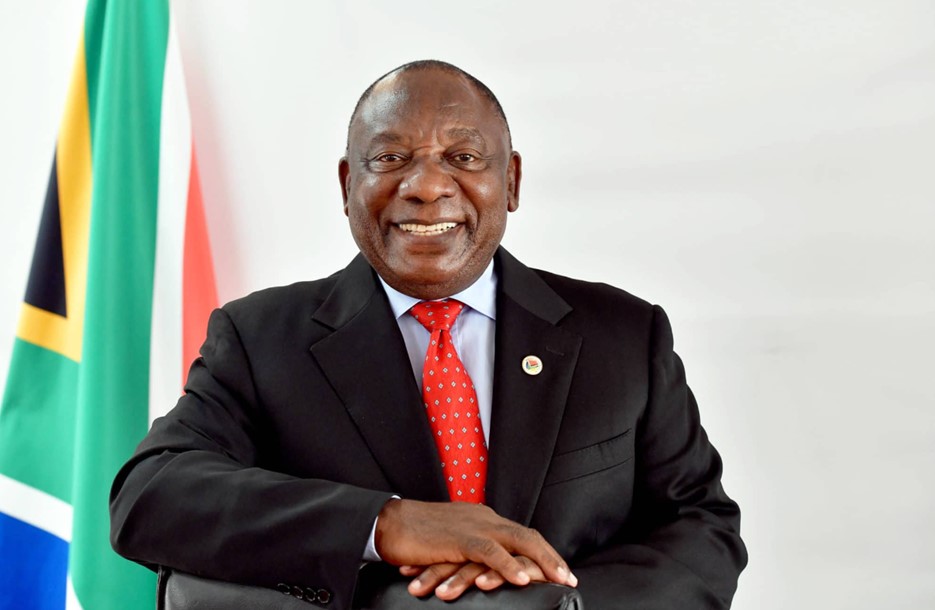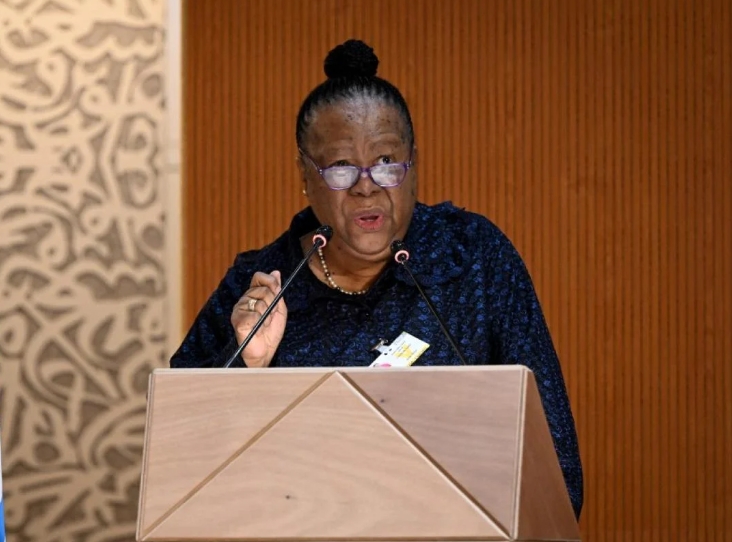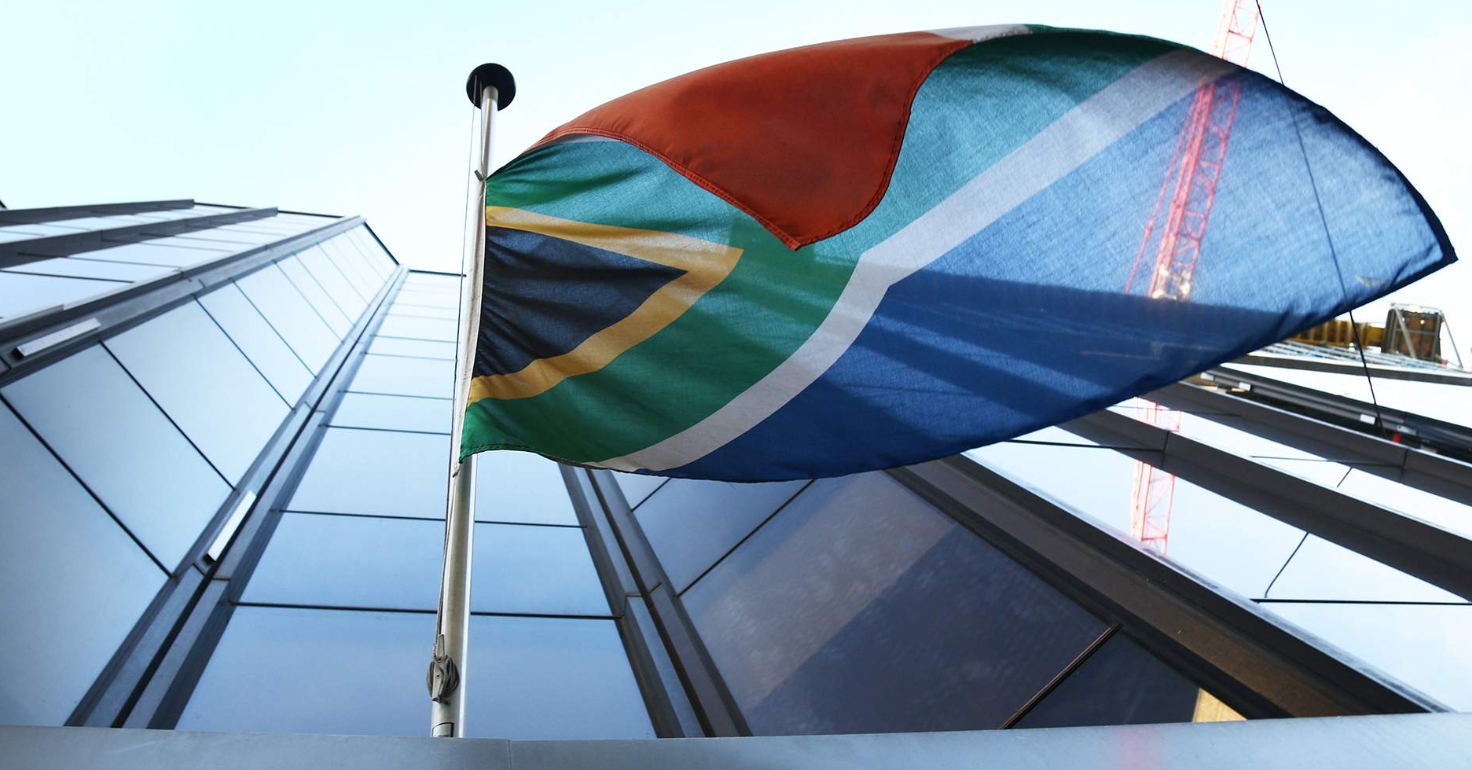Pretoria wants to build trade relations with Russia, despite pressure from Western countries
South Africa will not join the anti-Russian sanctions, as it pursues an independent policy. This was stated to Izvestia by the speaker of the Foreign Ministry of this country, Clason Moniela. According to him, the forthcoming visit of the President of the Republic Cyril Ramaphosa to Washington on September 16 to meet with his American counterpart Joe Biden will in no way affect relations between Moscow and Pretoria. Nevertheless, some companies in South Africa still refused to cooperate with Russia against the backdrop of sanctions, Izvestia was told at the Russian embassy. However, Moscow expects that Pretoria at the state level will continue to “adhere to a balanced line,” the diplomatic mission added.
Neutrality under pressure

South Africa is the third largest economy in Africa after Nigeria and Egypt, and the only country on the continent represented in the G20 and BRICS.
Washington and Brussels have repeatedly urged South Africa to clarify its position on the conflict in Ukraine. In March, the American Consul in Cape Town, Ted Haskell, directly demanded that the administration of President Cyril Ramaphosa tighten its approach to the Russian Federation. During US Secretary of State Anthony Blinken’s visit to South Africa in August, the Associated Press reported that the White House expressed disappointment that South Africa and much of the continent refused to follow the US lead in condemning Russia’s actions.
However, Pretoria continues to remain neutral and does not join the sanctions. South Africa was among 16 African countries that abstained in March on a UN resolution condemning “Russian aggression in Ukraine.”
On September 16, President Cyril Ramaphosa will head to Washington to meet with Joe Biden. One of the topics on the agenda is expected to be the position of South Africa in relation to the situation around Ukraine. As the official representative of the Ministry of Foreign Affairs of the republic Clayson Moniela specified to Izvestia, “nothing will change in Pretoria’s relations with Moscow after the president’s visit to the United States.”
— No, there will be no change, no sanctions. South Africa pursues an independent foreign policy that is not influenced by other countries. Our foreign policy is based on our national interests, not external pressure,” the diplomat stressed.
In May, President Cyril Ramaphosa said that “even those countries that are bystanders and are not involved in the conflict will also suffer from the sanctions that have been imposed against Russia.”
This is mainly due to markedly increased food prices — for the year, from July 2021 to July 2022, the cost of the food basket in South Africa increased by 14.8%. Russia and Ukraine are one of the world’s largest suppliers of fertilizers, their cost in the republic has increased by 30-40% since March.
Since the end of apartheid in 1994, South Africa has built close economic ties with the West. Thus, the trade turnover of the republic with the United States in 2021 exceeded $21 billion, while the trade balance with a margin of $10.2 billion was in favor of Pretoria. The country has been the US’s largest trading partner in Africa since the late 1990s. At the same time, the trade turnover between Pretoria and Moscow is 20 times less and barely exceeds $1.1 billion.
Because of the high level of economic engagement, Washington potentially has leverage over South African businessmen, Lindiwe Zulu, a member of the ruling African National Congress (ANC) party’s executive committee, said in July. According to him, the United States is expanding the pressure, targeting countries that have relations with Russia.
The Russian embassy in Pretoria confirmed to Izvestia that a number of firms in South Africa had indeed refused to cooperate with Russia due to sanctions imposed by the West.
“South Africa adheres to a balanced and balanced position on the situation around Ukraine,” the embassy stressed. — At the same time, some foreign companies operating in South Africa have joined the Western sanctions regime, which creates certain difficulties, but South Africa, as a state, has not joined the anti-Russian sanctions. We expect that the South African partners will continue to adhere to the balanced line they have chosen.
According to the diplomatic mission, in South Africa “they remain committed to the further development of strategic partnership and interaction between our countries both through bilateral relations and on international platforms: BRICS, G20 and the UN.”
The choice between history and economics

During an August visit, Secretary of State Anthony Blinken said the continent should not become “a new playing field in great power competition.” Literally a week before the visit of the American diplomat, Russian Foreign Minister Sergey Lavrov, Ukrainian Foreign Minister Dmitry Kuleba, French President Emmanuel Macron and EU diplomat Josep Borrell visited Africa on a big tour.
“The US will not dictate choices to Africa, and no one else should. The right to make this choice belongs to Africans and Africans only,” Blinken concluded.
South African Foreign Minister Naledi Pandor, at a briefing with her American counterpart, stressed that her country would maintain a neutral position on Ukraine, urging both sides to sit down at the negotiating table. At the same time, the Minister blamed the US and other Western powers for focusing on this conflict to the detriment of other international issues.
“We should be equally concerned about what is happening to the people of Palestine as we are about what is happening to the people of Ukraine,” the minister said.
On August 30, Russian Foreign Minister Sergey Lavrov also held talks with Naledi Pandor. As stated in a statement on the Foreign Ministry website following the conversation, “the Russian side noted the responsible position of Pretoria, which opposes the attempts of the collective West to draw African states into confrontation with Russia.”
The neutral position of South Africa is largely due to the support that the USSR provided during the Cold War era to the ANC Cyril Ramaphosa in his fight against apartheid, Irina Filatova, professor at the National Research University Higher School of Economics and the University of Cape Town KwaZulu-Natal, explained to Izvestia.
— The current leadership of South Africa has long-standing historical ties with Russia, relations are colored by the memory of past support for the USSR, the country absolutely associates present-day Russia with the Soviet Union, — the expert clarified.
From the 1960s to the 1990s, South Africa had racial laws at the state level that segregated the population based on skin color. There were restrictions against the black majority — in particular, they were forbidden to settle in large economically developed cities, which were given to whites. The black population was divided into “bantustans”, the poorest and most undeveloped areas of the country.
The USSR provided material support to the ANC in the fight against apartheid, hundreds of members of the Congress were trained in Soviet universities. Warm relations between Pretoria and Moscow are connected with this.
In 1988, the United States imposed sanctions against the ANC and included it in the list of terrorist organizations, from which it was excluded only on the 90th anniversary of Nelson Mandela in 2008. By the way, Mandela himself, as the leader of the congress, was also on the list of terrorists until this year.
— In South Africa, the policy of the West as a whole is unpopular, and so in many African countries — due to the fact that the Americans have occupied a monopoly position as a global leader for a very long time, and not always successfully. The idea that the ideals of democracy that the West preached would be close to everyone turned out to be wrong,” Irina Filatova noted.
At the same time, she agreed that the United States has leverage on Pretoria, since Washington is the main economic partner of many African countries.
“Therefore, of course, abandoning relations with the West in the name of relations with Russia is a thankless task for a country that has high unemployment and problems with the budget. From an economic point of view, South Africa really needs the States. But, like many other African countries, sanctions against the Russian Federation will be unprofitable — they will continue to buy from Russia what they buy, and maybe they will even buy more, the expert admitted.
Earlier, South African Energy Minister Gwede Mantashe urged the country to increase purchases of Russian crude oil. This proposal caused a flurry of criticism from the opposition, which considers supplies from the Russian Federation to be a violation of sanctions.
— Yes, South Africa can organize purchases of Russian oil at reduced prices, as India did. Therefore, talks about the creation of a state oil company have intensified in the country,” Irina Filatova added. — I think the leadership of South Africa, especially against the backdrop of the approaching elections within the ANC in December, will try to behave as in the years of the previous Cold War — to benefit from both sides.
Both Russia and the US are planning to hold summits of African leaders in the near future: Moscow intends to gather politicians for a second Russia-Africa summit in mid-2023, while the US wants to organize its own meeting this December.

